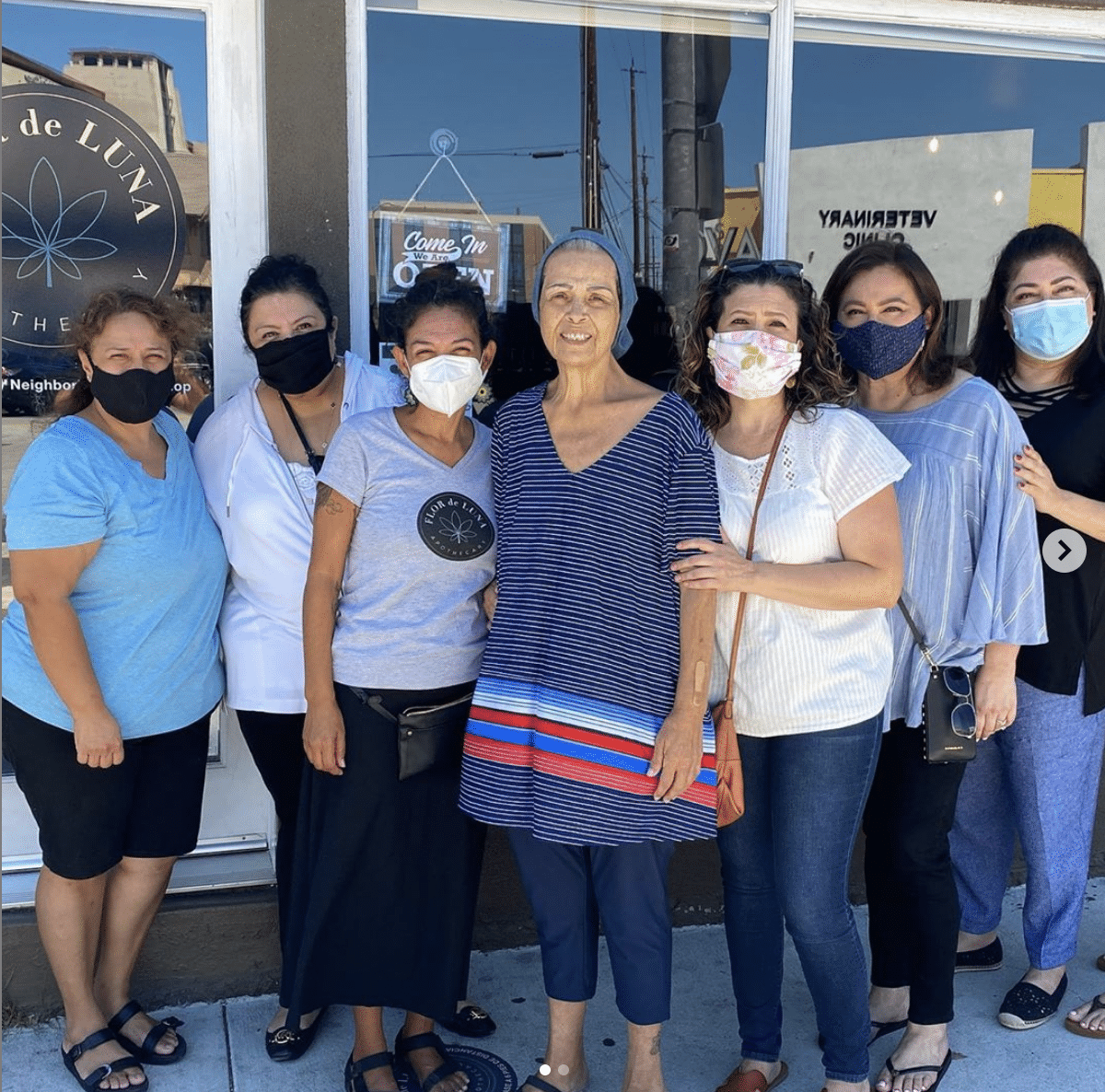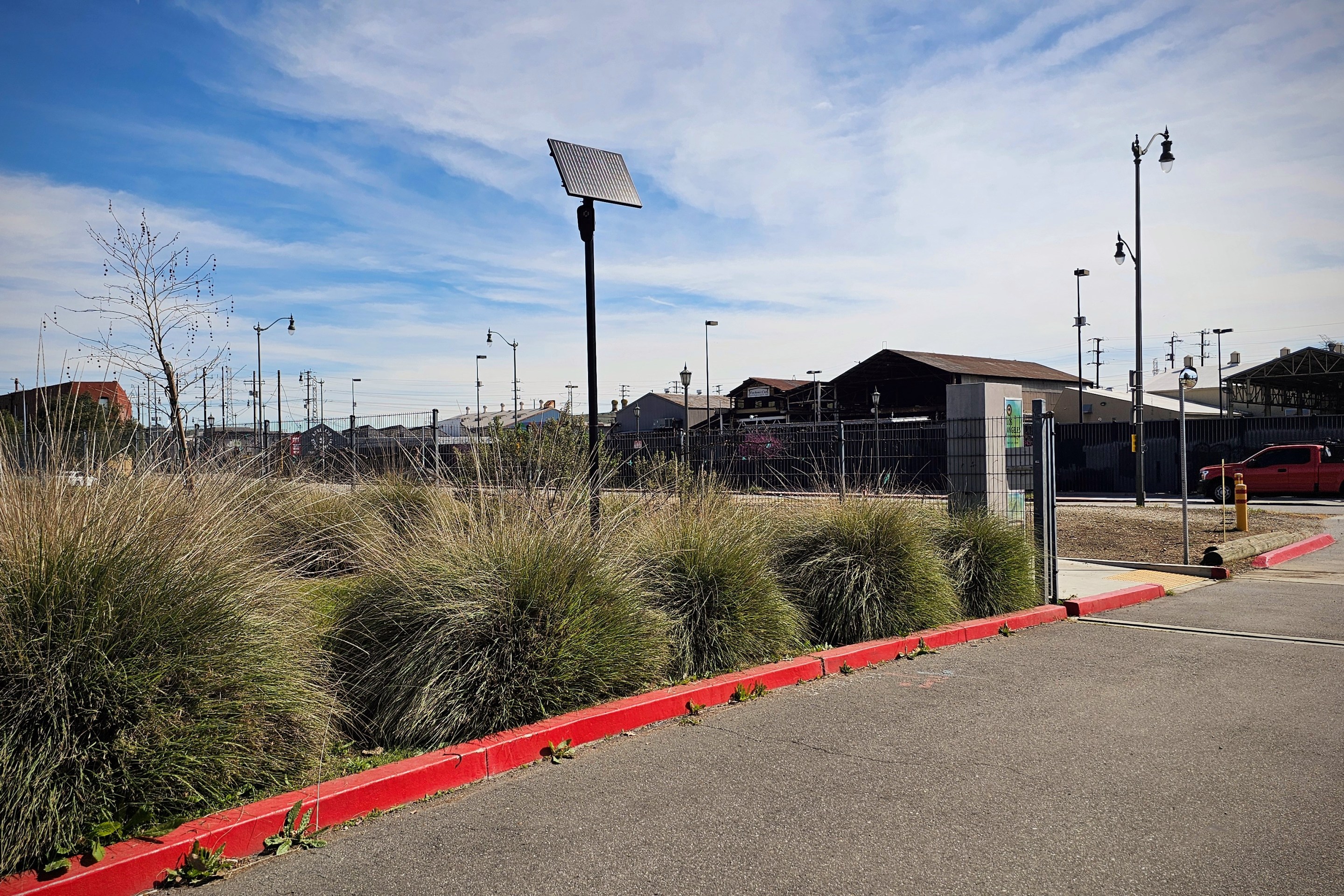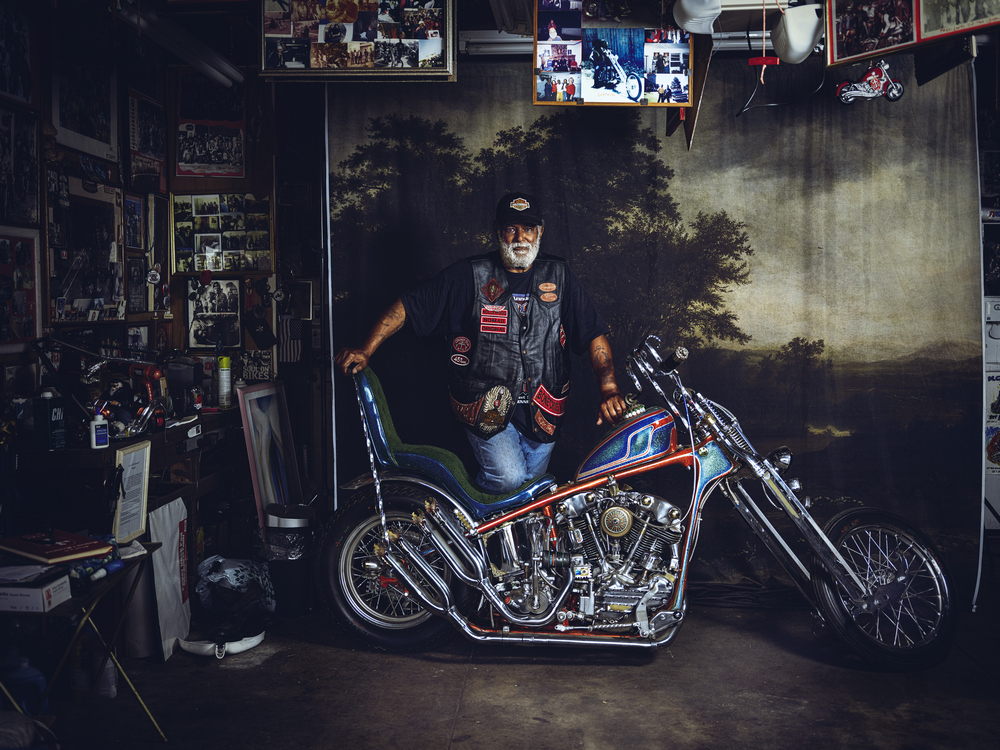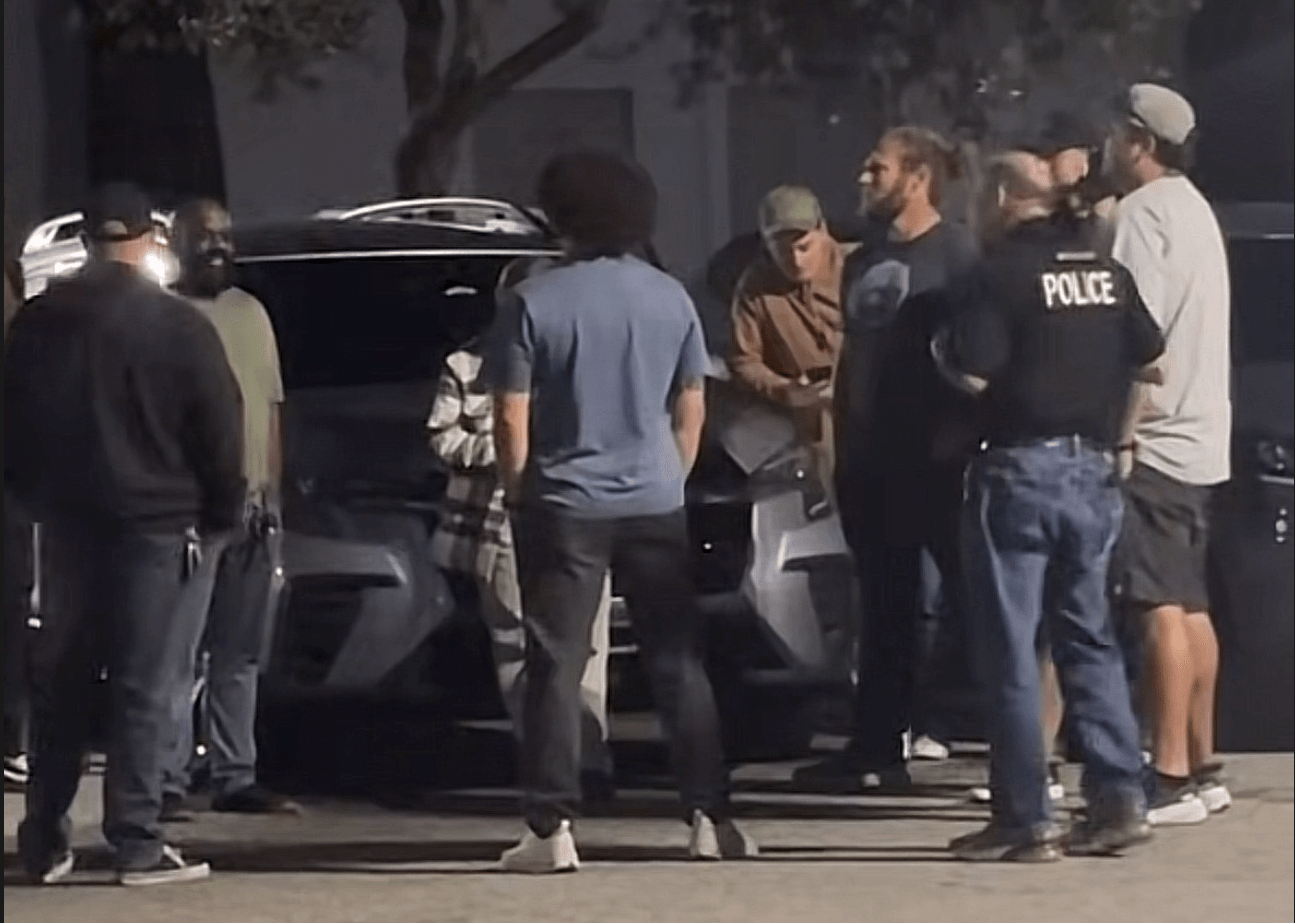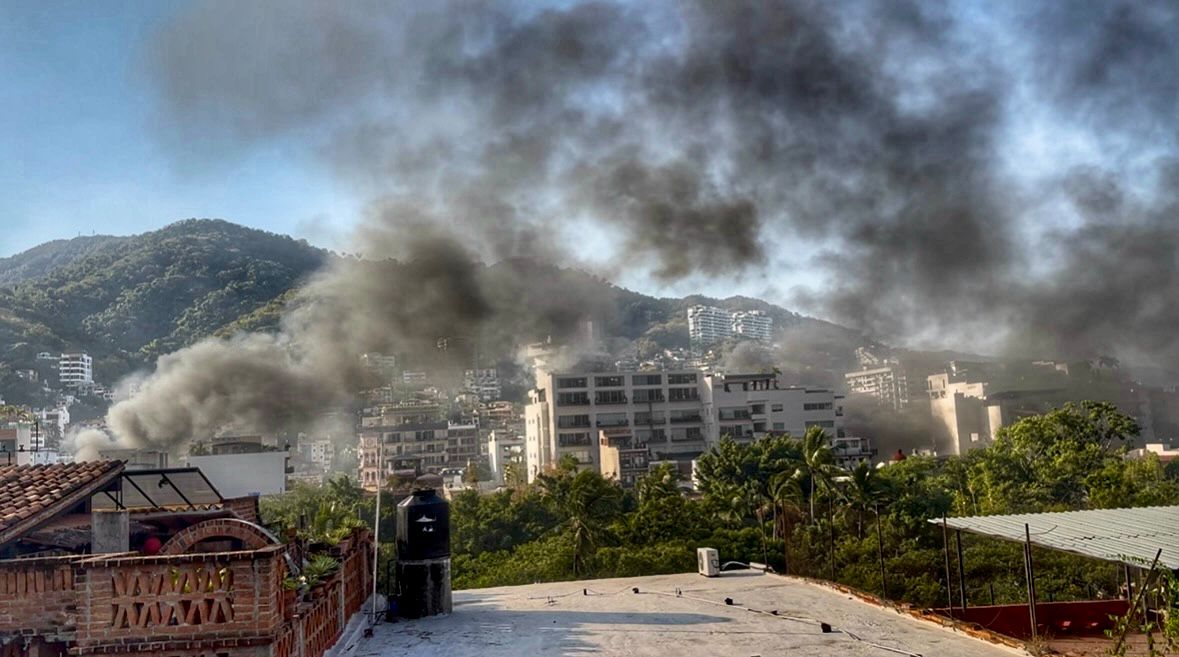[dropcap size=big]T[/dropcap]he current pandemic has pushed back many of our individual plans and aspirations, but for some small business owners like Luis and Dominique Sanchez, not even that was going to stop them from opening up Flor de Luna Apothecary. It is the first CBD brick and mortar shop to open in Boyle Heights. However, in these crucial times when marginalized communities in the city are being affected more than ever, what exactly is the goal and added benefit of opening up a cannabis-based wellness shop in the hotbed of gentrification battles in L.A?
The corner property sits across the street from Mariachi Plaza. A CBD shop opening in this historic area known by many to be the heart of Boyle Heights reminds us of the changing landscape and ongoing narrative around gentrification versus genteficiation, but both Luis and Nikki are confident that their mission and vision seek to bring an added value to the community—not hurt it. Their business plan is to promote the benefits of CBD as an alternative form of medicine and healing to the local residents made up of mostly Mexican and Central American families.
“My grandmother in Jalisco had a jar full of marijuana in alcohol as a traditional form of medicine to treat common health issues such as joint pain, high blood pressure, and insomnia,” Luis shares with L.A. Taco. This reference point involving this DIY old school Mexican remedy that many other Latinos can relate to is how he is hoping to appeal to curious señoras or lingering mariachi musicians who walk by Flor de Luna Apothecary. “I just told the owner of a local taquería across the street: ‘CBD es la parte de marijuana que no intoxica.'”
The Journey
Luis and Dominique both have roots in L.A.’s real east side. Luis’s parents immigrated to Boyle Heights from Yahualica, Jalisco while Nikki grew up in Pico-Union and lived in Boyle Heights for a decade; her mother grew up in the Estrada Courts housing projects of East L.A. Both individuals eventually crossed paths, fell in love, married, and eventually faced the difficult reality of having to face cancer in their respective families. Both Luis and Nikki’s mothers underwent radiation and chemotherapy that led to immense pain and discomfort. Faced with this reality, both Luis and Nikki sought to introduce CBD as an alternative form of medicine.
Both Luis and Nikki are aware their shop looks different from the botánicas (the traditional herbal medicine-based predecessors to pharmacies that used to be found all over East Los Angeles and Latin America) they grew up with in the area but are both confident and hopeful that the energy and purpose to heal will be similar.
A few years prior to their parents' diagnosis, Nikki herself had suffered an injury where she broke both ankles while pregnant. Under immense pain, Nikki learned about the benefits of CBD. Nikki accounts, “We read and learned a lot about CBD, cannabis in general, and felt that a more natural plant-based approach to managing my pain and post-surgery and physical recovery, would be the best route for me. The more we learned about CBD, the more we wanted to share that information to our friends and family.” Years later, Nikki and Luis encouraged their parents to use CBD in different ways to help alleviate their pain, muscle soreness, and inability to sleep. The results were promising and both Nikki and Luis’s mom accepted CBD as part of their recovery.
Moving Forward
Both Luis and Nikki have long term plans for Flor de Luna. They hope to educate the community by offering “CBD 101” sessions in both English and in Español in order to help educate their neighbors about CBD. More importantly, to combat the stigma and dispel the myths around marijuana. Nikki asserts that “CBD has been an integral part of our family's health, and we want to make sure that our community is well informed about this medicine. When the time is right, we will also be planning a variety of healing circles and events to promote physical, mental, and spiritual health.”
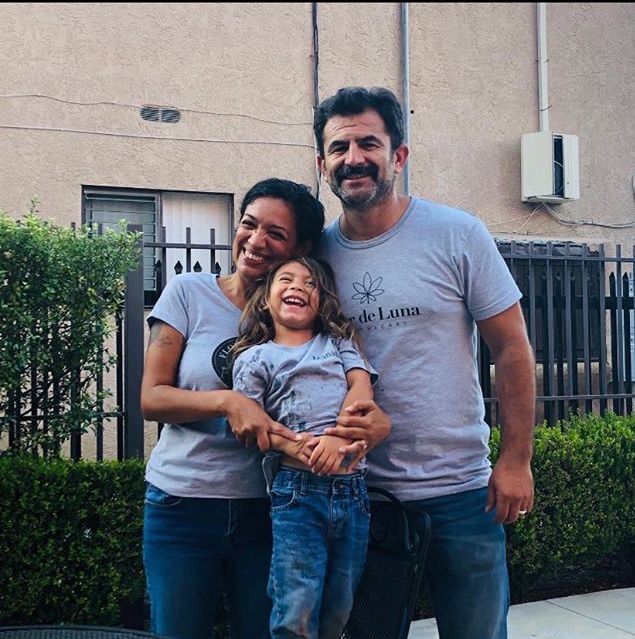
Both Luis and Nikki are aware their shop looks different from the botánicas (the traditional herbal medicine-based predecessors to pharmacies that used to be found all over East Los Angeles and Latin America) they grew up with in the area but are both confident and hopeful that the energy and purpose to heal will be similar. It also is not a traditional apothecary by modern standards, since Luis and Nikki are focused solely on CBD and not other herbal remedies for now. “We hope that Flor de Luna Apothecary will be a bridge to cannawellness and optimal health. We also hope that it’ll be a bridge between generations.”
Since their opening two weeks ago, Luis and Nikki have welcomed young people seeking to broaden their understanding of CBD. “We have had a lot of young people come in and ask tons of questions about our products. They have a vague idea of the uses of CBD, but they are also there to learn about the benefits of CBD.”
“We’ve been studying and following folks to learn more about what it means for BIPOC to decolonize and reclaim our medicine. Playing an active role in that journey is very personal to us.”
The new small business owners hope to serve as a community wellness hub for generations to come and to reclaim a product traditionally associated with more privileged people living in more affluent neighborhoods.
Both Luis and Nikki are fully aware of the ongoing challenges facing the community including how the ongoing housing and redevelopment crisis has priced out many of its residents and business owners. The couple and small business owners are also keenly aware that they can be seen as suspect themselves, even if they were raised in the same streets as the notorious anti-gentrification activists that also look out for the area.
Nonetheless, they hope to earn the respect and serve their community they have such a strong connection with and to also provide a space for their son, Fidel, to “grow up” in the community where his parents met. In this pursuit, they also have a “Mini Entrepreneur” wall in the shop dedicated to providing a retail for different young entrepreneurs from the neighborhood. A recent post on their Instagram showed their latest product: small, handcrafted keychains and charms from a young Latina.
“We’ve been studying and following folks to learn more about what it means for BIPOC to decolonize and reclaim our medicine. Playing an active role in that journey is very personal to us.”
